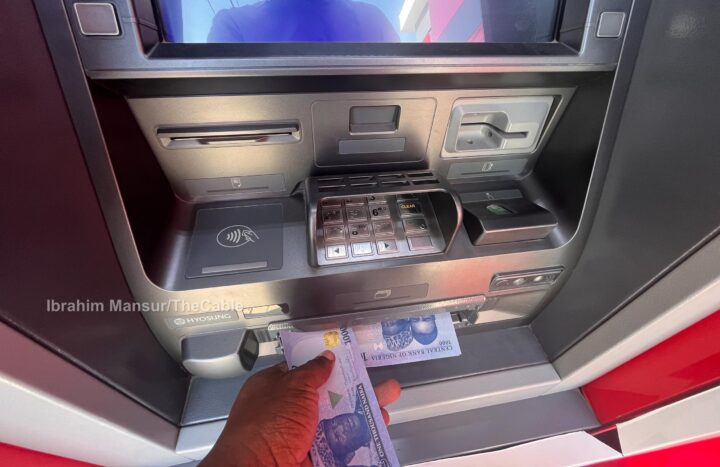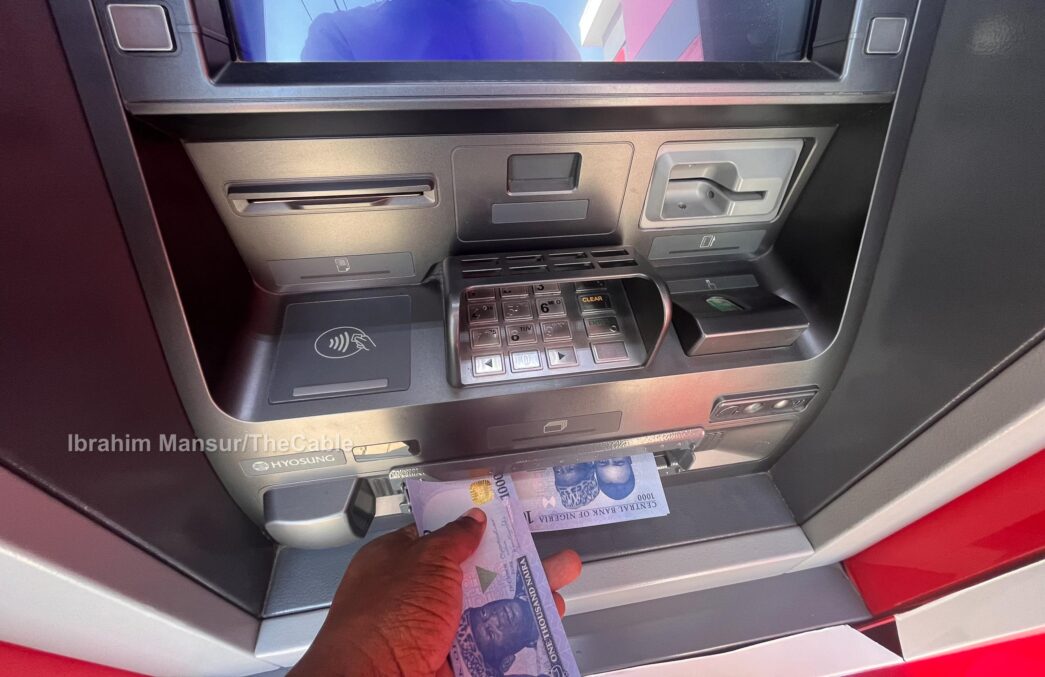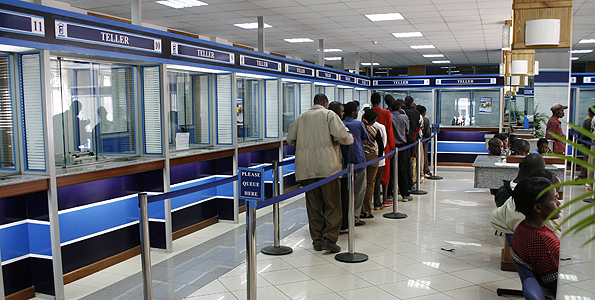BY ABIODUN OLUWADARE
The automated teller machine (ATM) was introduced as a technological innovation to make banking more accessible, convenient, and efficient for people and businesses. In a world where time is money, the advent of ATMs revolutionised financial transactions, enabling customers to access cash and other banking services without entering a bank or waiting in long queues. However, the Nigerian experience with ATMs has become a paradox, with the very technology designed to ease financial operations now being a source of frustration, inefficiency, and socio-economic stagnation. This situation, exacerbated by systemic failures, mismanagement, and profiteering, raises critical questions about the future of Nigeria’s banking sector and its implications for national development.
The ATM conundrum in Nigeria
When ATMs were first introduced in Nigeria, they were met with enthusiasm and hope for a more efficient banking system. However, the reality has yet to meet expectations. Issues such as malfunctioning machines, the infamous ” card swallowing” problem, network failures, and the perennial unavailability of cash have plagued the system. Customers routinely encounter ATMs that display the frustrating message, “Unable to dispense cash”, even as queues grow longer and tempers flare.
Advertisement
Even more troubling is the sight of party vendors and informal money changers offering crisp, mint cash for sale—often at exorbitant rates—while ATMs across the country remain perpetually cash-strapped. This raises unsettling questions about corruption, collusion, and the mismanagement of currency distribution within the banking sector. The irony of banks failing to fulfil their primary function of providing access to cash while informal operators thrive in their stead reflects a troubling erosion of trust in Nigeria’s financial institutions.
Economic implications of the ATM crisis
The ATM crisis in Nigeria carries profound economic ramifications that hinder the country’s progress and weaken its financial systems. Each facet of the issue magnifies challenges for businesses, individuals, and the overall economy, deepening systemic inefficiencies and eroding trust in formal banking institutions.
Advertisement
The situation with ATM services is capable of reducing business efficiency especially small and medium-sized enterprises (SMEs) that form the backbone of Nigeria’s economy, access to cash is not just a convenience—it is essential for survival. The inability of ATMs to dispense cash reliably disrupts supply chains, stalls payments, and curtails consumer spending, all of which directly harm business operations. SMEs, often already operating on thin margins, are disproportionately affected.
Many are forced to rely on costly alternatives such as point-of-sale (POS) services to access funds, which further erodes their profitability. This systemic inefficiency stifles entrepreneurship and innovation, slowing economic growth and deepening reliance on informal financial networks.
The nearly moribund ATM services can increase transaction costs. It has led to the unchecked proliferation of POS operators, who have become intermediaries between customers and their funds.
While these operators fill a critical gap in cash availability, their services come at a steep price. Fees for cash withdrawals, often inflated in times of scarcity, impose an additional financial burden on ordinary Nigerians. For a populace already grappling with high inflation, rising unemployment, and other economic pressures, these costs amplify financial strain. The cascading effect of these added expenses weakens purchasing power, reducing economic activity and further exacerbating the struggles of individuals and businesses alike.
The poor performance of ATM services is capable of eroding consumers’ confidence. The persistent inefficiency of ATMs has deeply undermined public trust in Nigeria’s banking sector. Financial institutions, which should symbolise reliability and innovation, are now perceived as failing in their fundamental duty to facilitate easy access to cash. This erosion of confidence discourages many from fully engaging with formal banking systems, driving a resurgence of cash-based transactions. This trend not only impedes efforts to modernise Nigeria’s economy but also expands the informal economy, which is notoriously difficult to regulate, tax, and integrate into national development plans.
Advertisement
ATMs’ poor outing in Nigeria has barricaded and stagnated digital financial inclusion which was one of the reasons it was established. Globally, nations are pivoting toward cashless economies and leveraging digital banking to improve accessibility and efficiency. However, Nigeria’s ATM failures hinder similar progress. When foundational banking infrastructure fails to deliver, it becomes almost impossible to convince people—especially in underserved rural areas—to transition to digital alternatives such as mobile banking or online transactions.
This stagnation is a missed opportunity to enhance financial inclusion, particularly for millions of Nigerians who remain unbanked or underbanked. The digital divide widens further, leaving rural and marginalised communities excluded from the economic benefits of a fully digitised financial ecosystem.
The conditions of ATMs in Nigeria can have a negative impact on foreign investment. Nigeria’s inability to maintain an efficient financial infrastructure sends troubling signals to potential foreign investors. A reliable banking system is a cornerstone of any thriving business environment, as it ensures seamless financial transactions, encourages commerce and builds investor confidence.
The current state of ATMs and the systemic failures they represent paint a glooming picture of inefficiency, mismanagement, and poor governance. For foreign investors evaluating the Nigerian market, these issues raise red flags about the overall ease of doing business, deterring investments that are critical for economic growth, job creation, and technological advancement.
Advertisement
Social implications of the ATM crisis
The daily struggle to access cash has taken a psychological toll on Nigerians as they face increased stress and frustration. Long queues at ATMs, combined with the uncertainty of whether the machine will dispense cash, create unnecessary stress and inconvenience. This frustration erodes public morale and contributes to a sense of disenchantment with the system.
Advertisement
The sale of mint cash at parties and the thriving business of POS operators point to a deeper issue of systemic corruption that exacerbates inequality. The disparity between those who can access cash through informal means and those who cannot exacerbate social inequality fosters resentment and distrust.
When banks fail to provide basic services, the social contract between financial institutions and their customers is broken. This breach fuels public disillusionment and weakens the sense of community and shared purpose essential for national development.
The reliance on POS operators and cash-based transactions increases the risk of theft and fraud. Traders now prefer to keep their money at home for easy access when they need it as they no more trust that the bank will provide it through ATM when needed. This situation leads to increase in burglary cases and stealing. It also places undue pressure on law enforcement agencies, which must contend with the heightened vulnerabilities associated with an overly cash-dependent economy.
Advertisement
Comparisons with global practices
In many parts of the world, ATMs are synonymous with convenience and reliability. Countries with robust financial systems have leveraged ATM technology to reduce operational costs, increase financial inclusion, and enhance customer satisfaction. In contrast, Nigeria’s experience highlights a troubling divergence from global standards. The chronic failure of ATMs in Nigeria underscores the need for systemic reforms and a renewed commitment to improving banking infrastructure.
Advertisement
Addressing the crisis: A call to action
The challenges plaguing Nigeria’s ATM system are symptomatic of deeper systemic issues within the banking sector and the broader economy. Beyond inconveniencing customers, these issues reveal inefficiencies, governance lapses, and a lack of accountability that undermines the nation’s socioeconomic potential. To mitigate these problems, regain public trust, and foster a robust financial system, the following actions are paramount:
Improved currency management
The Central Bank of Nigeria (CBN) must prioritise equitable currency distribution to ensure all banks are adequately stocked with cash. This entails adopting transparent monitoring systems to track cash flow, identifying bottlenecks, and imposing strict penalties on non-compliant institutions. An efficient currency management system would eliminate cash shortages and restore public confidence in both the banking sector and the financial regulatory framework. Such reforms are essential for addressing the prevailing disparities that fuel informal cash markets and exploitative practices.
Investment in infrastructure
Banks must move beyond short-term fixes and invest significantly in upgrading their ATM networks. Regular maintenance, advanced technology integration, and expanded machine availability are essential to reduce downtime and ensure seamless operations. ATMs should be equipped with updated software capable of handling increased transaction volumes, particularly during peak periods. Investment in renewable energy solutions, such as solar-powered ATMs, could also mitigate challenges posed by unreliable power supply. These infrastructural improvements would not only enhance customer satisfaction but also bolster the overall efficiency of Nigeria’s banking system.
Regulation of POS operators
While POS operators have provided an alternative for cash access, their unchecked proliferation and exploitative charges have become a burden on consumers. The CBN must introduce clear regulations to standardise transaction fees and prevent exploitative practices. This includes mandatory licensing, periodic audits, and punitive measures for operators who violate consumer protection guidelines. Regulating POS activities will ensure that these services complement, rather than undermine, the formal banking system.
Accountability and anti-corruption measures
The sale of mint cash at social events and the presence of black-market cash channels underscores significant governance and accountability gaps within Nigeria’s financial ecosystem. Comprehensive investigations are required to identify and prosecute individuals and institutions involved in these practices. Moreover, the CBN and anti-corruption agencies must strengthen oversight mechanisms to curtail currency diversion and insider collusion. Restoring integrity in the banking sector hinges on eliminating corruption and holding all actors accountable for malpractice.
Promoting digital alternatives
A sustainable solution lies in transitioning from a cash-reliant economy to a predominantly digital one. However, achieving this requires addressing existing barriers such as inadequate internet infrastructure, high transaction costs, and limited digital literacy. Financial institutions and policymakers must collaborate to invest in Internet penetration, enhance mobile banking platforms, and educate the public on the benefits of cashless transactions. Incentives such as reduced transaction fees for digital payments and rewards for using electronic channels could encourage widespread adoption, paving the way for greater financial inclusion.
Public-private partnerships
Addressing the ATM crisis requires innovative solutions that leverage the combined expertise of public and private sector actors. Partnerships between the government, financial institutions, and technology firms could drive the development of solutions such as mobile ATM trucks or community banking hubs tailored to underserved areas. These collaborations can also support pilot projects aimed at testing alternative financial models, such as biometric ATMs or blockchain-based payment systems, to address Nigeria’s unique challenges.
Conclusion
The current state of ATMs in Nigeria represents a significant setback for the country’s socio-economic development. Beyond the immediate frustrations, it highlights systemic inefficiencies that hinder progress, exacerbate inequality, and erode public trust. Addressing these challenges requires a multifaceted approach that prioritises transparency, accountability, and innovation. By restoring ATMs’ functionality and reliability, Nigeria can unlock the full potential of its financial system, paving the way for a more inclusive, equitable, and prosperous society.
Oluwadare, a retired military officer, is a professor of political science at the Nigerian Defence Academy (NDA) Kaduna
Views expressed by contributors are strictly personal and not of TheCable.












